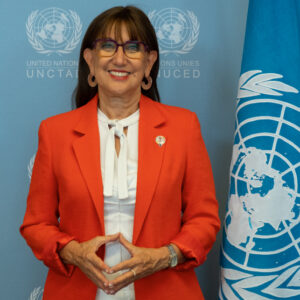
 By Rebeca Grynspan*
By Rebeca Grynspan*
The war in Ukraine has a huge cost in human suffering and is sending shocks through the world economy.
I want to express solidarity with the millions of men, women and children impacted and displaced by the invasion of Ukraine and I echo the call made by United Nations Secretary-General António Guterres for the conflict to stop now.
This crisis, coming during the global COVID-19 pandemic, is accelerating existing vulnerabilities and widening inequalities across the world. All countries will be affected by this crisis, but developing countries already hit by the COVID-19 pandemic, rising debt and climate change will be hit especially hard by disruptions in food, fuel, and finance.
Also read: Russia-Ukraine war will determine new scenarios on global food security
Soaring food and fuel prices will affect the most vulnerable in developing countries, putting pressure on the poorest households which spend the highest share on their income on food, resulting in hardship and hunger.
This is cause for great concern, as social and political stability and increasing food prices are highly correlated.
Countries, already under severe pressure due to the costs of the pandemic, will see disruption in trade, deficits widen and investment contract. Additionally, a significant increase in oil and gas prices can shift investment back into fossil-fuel-based energy generation, which risks reversing the trend towards renewables at a time of acute climate crisis.
All these shocks threaten the gains made towards recovery from the COVID-19 pandemic and block the path towards sustainable development.
UNCTAD is committed to supporting developing countries to face these shocks and protect the wellbeing of their populations, especially the most vulnerable.
*The writer is the Secretary-General of the United Nations Conference on Trade and Development (UNCTAD), Geneva





